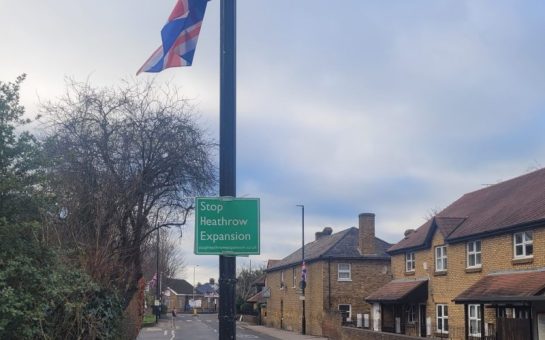Since July of last year London’s 75 MPs have accepted more than £2.7 million in gifts and donations, approximately £37,000 per head.
Jeremy Corbyn, independent MP for Islington North, tops the list as the most donated and gifted to MP since the last general election, having received more than £130,000 from mainly crowd-funded sources.
Transparency – is it enough?
Freelance journalist Ethan Shone, who has written extensively on Parliamentary lobbying with OpenDemocracy’s Dark Money investigations, said that despite recent efforts to publicise and streamline the registration of MPs’ financial interests, exclusively focusing on ‘transparency’ was not enough to guarantee accountability.
He said: “MPs feel like there is actually no obligation on them to talk about it to voters, to acknowledge and justify it, because there is transparency.
“Transparency, in some ways, completely stops the conversation about whether the reality of what these donations and this lobbying achieve is actually right and is actually justifiable.”
The Register of Member’s Interests records the donations, gifts, and financial interests of sitting MPs.
MPs are expected to register this information themselves, but only if the given donation, gift, or interest meets a certain money-value threshold.
They must declare donations or support for their activities as an MP if it exceeds £1,500 in a single calendar year, as well as any gifts, benefits, or hospitality received ‘in their capacity as an MP’ which exceeded a value of £300.
Digging into the data
Donations and gifts to London MPs come in a myriad of forms, sometimes linked to the individual directly or via their local party organisation, delivered in monetary form or as free hospitality to an MP or their loved ones.
In the case of Corbyn, the largest section of his registered funding (totalling around £63,000) is comprised of left-over, crowd-funded donations from his general election campaign, now said to be being re-allocated into various, local not-for-profit schemes.
In fact, though they sometimes directly benefitted the former Labour leader (for example in financing his defence in a libel trial which was brought against him by Richard Millett) the vast majority of Corbyn’s gifts and donations are crowd-funded.
This is not the case for the two Ministers featured in London’s top-ten most donated and gifted to MPs, Health Secretary Wes Streeting (£78,160) and Foreign Secretary David Lammy (£69,000).
The vast majority of Lammy’s monetary donations (£57,000) are merely listed as money ‘to support the office of the Shadow Foreign Secretary’ and come from wealthy backers like Lady Jeanne Marie Davies and Jonathan Stone.
Most of Streeting’s funding (£53,000) was registered as ‘staffing costs’ for his local constituency office, received via a company owned by lobbying mogul Peter Hearn.
Traditionally, the financial interests of Ministers have been treated differently compared to regular members of the House of Commons and Lords, as per the Ministerial Code.
In theory, new MPs (i.e. those being elected for the first time in 2024) may be more likely to have registered multiple donations after an election in the course of establishing contacts and financial support while starting out in Parliament.
The dataset seems to support this hypothesis, with the second, third and tenth most well-funded MPs being part of the 2024 fresh intake: Labour MPs Joe Powell (£115,010), Rachel Blake (£94,995) and Margeret Mullane (£50,491.83).
Average gifts and donations by party
Broken down by party, Tory MPs have been gifted more on average than Labour and Liberal Democrat MPs (£4,337.71 versus £4,071.96 and £2,005.87 respectively).
On the other hand, the average Liberal Democrat MP received the most in donations (£39,389.67) compared to Labour (£25,218.83) and Tory (£18,860.25) members.
Football, financiers and fraternity: the most concentrated sources of funding
Since the last election the Premier League and constituent clubs have forked out over £22,000 in free hospitality to seven of London’s MPs, three of which attend cabinet.
This distinguishes it as one of the most successful lobbying operations in Parliament.
Concerns have been raised that the Premier League’s gifts and hospitality are a form of pure transactional lobbying designed to sway opinion while the government debates introducing an independent regulator for the tournament.
Commenting on this pattern, Shone said: “The Premier League is not making those donations because it supports those individual MPs.
“It’s doing them to, in some way, gain favour or gain additional access to the MPs who might make some kind of difference, or to gradually set a tone inside Parliament whereby MPs have a favourable view of the Premier League.”
In terms of single, one-off donations from private individuals, Joe Powell registered the largest donation in July of last year: £40,000 from David Sainsbury was used, curiously, to finance a ‘Campaign Organiser’ from Powell’s own Labour Party.
In second place for largest one-off donation is John McDonnell, who in November 2024 registered a donation of £34,358 from the Public Commercial Services Union as yearly payment for coordinating and chairing its Parliamentary Group.
Streamlining and reform
As is customary, last year the incoming Prime Minister Sir Keir Starmer produced a set reforms to the Ministerial Code, which included mandating the Cabinet Office publish a monthly (instead of quarterly) Register of Minister’s Gifts and Hospitality.
Although this means Ministers are still not quite on-par with other Members and Peers in Parliament’s two Houses (who are expected to declare their interests fortnightly), the reforms have nonetheless been welcomed as a step in the right direction by organisations like Transparency International UK and the Institute for Government.
When approached for comment, a Cabinet Office spokesperson stressed that these reforms and others, such as the strengthening of the Independent Adviser, showed the government’s commitment to balancing Ministerial responsibility with engagement in public.
The spokesperson said: “This government is committed to transparency.
“That’s why we have strengthened transparency requirements and introduced clear principles governing ministers’ acceptance of gifts and hospitality.
“It is an important part of a minister’s role to engage with civil society, local government and other partners in sectors of the UK economy relevant to their roles.”





